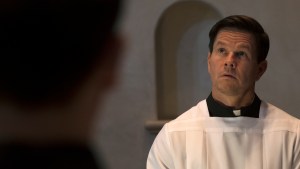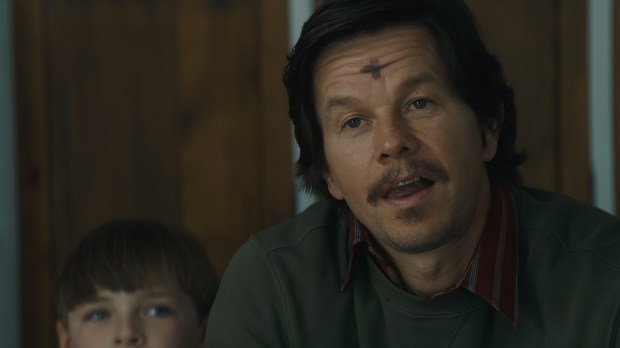Well, it looks like Father Stu is going to be one of those movies. You know, the type of film professional critics rush to lambast while moviegoers ignore them and go to see it anyway. As of this writing, the consensus among the pros on Rotten Tomatoes is that Father Stu is certifiably bad, garnering only a meager 47% positive rating. On the same site, however, regular audiences who have been granted a sneak peek at the film have awarded Father Stu a whopping 99% approval. That’s a bit of a gap.
Why such a discrepancy? The critics would likely argue it’s because Father Stu doesn’t hold up to the aesthetic standards of the art of filmmaking, at least as they interpret them. Critics of the critics, on the other hand, might suggest that far too many paid reviewers are simply godless heathens who aren’t going to give a faith-based film an honest chance no matter how well it’s made.
And Father Stu, whether it is “art” or not, is well made. The movie is based on the real-life story of Stuart Long, a failed boxer who moves to Hollywood to pursue acting, only to discover he has a different calling in life. While that sounds like a standard setup for any number of movies made for the church-going crowd, there are a couple of things that help Father Stu stand out from the pack. The first is obviously the star power involved, with Mark Wahlberg playing the title character and Jacki Weaver and Mel Gibson taking on the roles of his parents. Most faith-based films don’t have two Academy Award nominees and one Academy Award winner as their main characters, nor the increased production quality such folks often bring with them.
The second thing is that the first five minutes of the film are filled with enough expletives, including more than one F-bomb, that it quickly becomes apparent Father Stu is going to be a bit rougher around the edges than the typical movie geared towards pew sitters. Still, given the personalities of the people portrayed in the film, a few select curse words here and there are not out of place.
As the story begins, Stu has received one too many beatings in the ring and has decided to relocate to Tinseltown to give acting a try. His parents, estranged from one another following the death of their only other child, each try to talk him out of such folly, but to no avail. Alas, Stu’s acting abilities turn out to be less promising than his boxing skills, so he’s forced to settle for a job in the butcher shop of a local grocery. Nevertheless, Stu remains upbeat, especially once he spies Carmen walking the supermarket’s aisles.
Stu is immediately smitten and sets about wooing the young woman, but Carmen is having none of it, especially from some aggressive ill-mannered palooka who doesn’t go to church. So, ever the proactive optimist, Stu starts to attend Mass. Carmen is still a no-go, though, because she won’t date anyone who isn’t a baptized Catholic. Immediately, Stu begins catechism classes and gets baptized. And on it goes, with Carmen continuously nudging Stu closer and closer to God, and Stu going along with it all because that’s what it takes to get what he wants. Or so Stu believes until a near fatal motorcycle leaves him convinced that what God wants instead is for him to enter the priesthood. Stu’s the only one convinced, though, as Carmen, his priest, and his parents all find the idea laughable. Stu, after all, is no saint.
Undeterred, Stu talks his way into the seminary where his eternally gruff demeanor often puts him at comedic odds with his exasperated instructors and fellow students. Sadly, the film takes a more serious turn when Stu is diagnosed with inclusion body myositis, a muscular disease for which there is no effective treatment. This presents a crisis of faith for Stu as this may end his journey to the priesthood, as well as for his parents who can’t accept that any God would allow both their children to be so cruelly taken from them.
Given that Father Stu is based on true events, the outcome of it all is simultaneously sad and uplifting in that way only real life can be. Perhaps that’s one of the reasons test audiences are responding so well to the film. It’s a straightforward earnestly told tale of a regular Joe who manages to find God’s purpose in his life even though the path to it is filled with obstacles and the destination is nowhere near where he thought it would be. Isn’t that so often the case?
As to why most critics aren’t enjoying Father Stu as much as the test audiences, perhaps it’s the film’s very straightforwardness that doesn’t do it for them. Required to watch hundreds of motion pictures each year, reviewers are often on the lookout for something more offbeat and artier, and Father Stu is not that film. Or perhaps their detractors are correct, and the critics just can’t stomach a movie that unabashedly celebrates the Catholic priesthood and the men who are called to it.
Either way, it’s best just to accept Father Stu as one of those movies where the Tomatometer is to be ignored and the film enjoyed on its own terms. It’s not concerned with flashiness, but rather with faith and forgiveness, and in those areas it more than succeeds.



